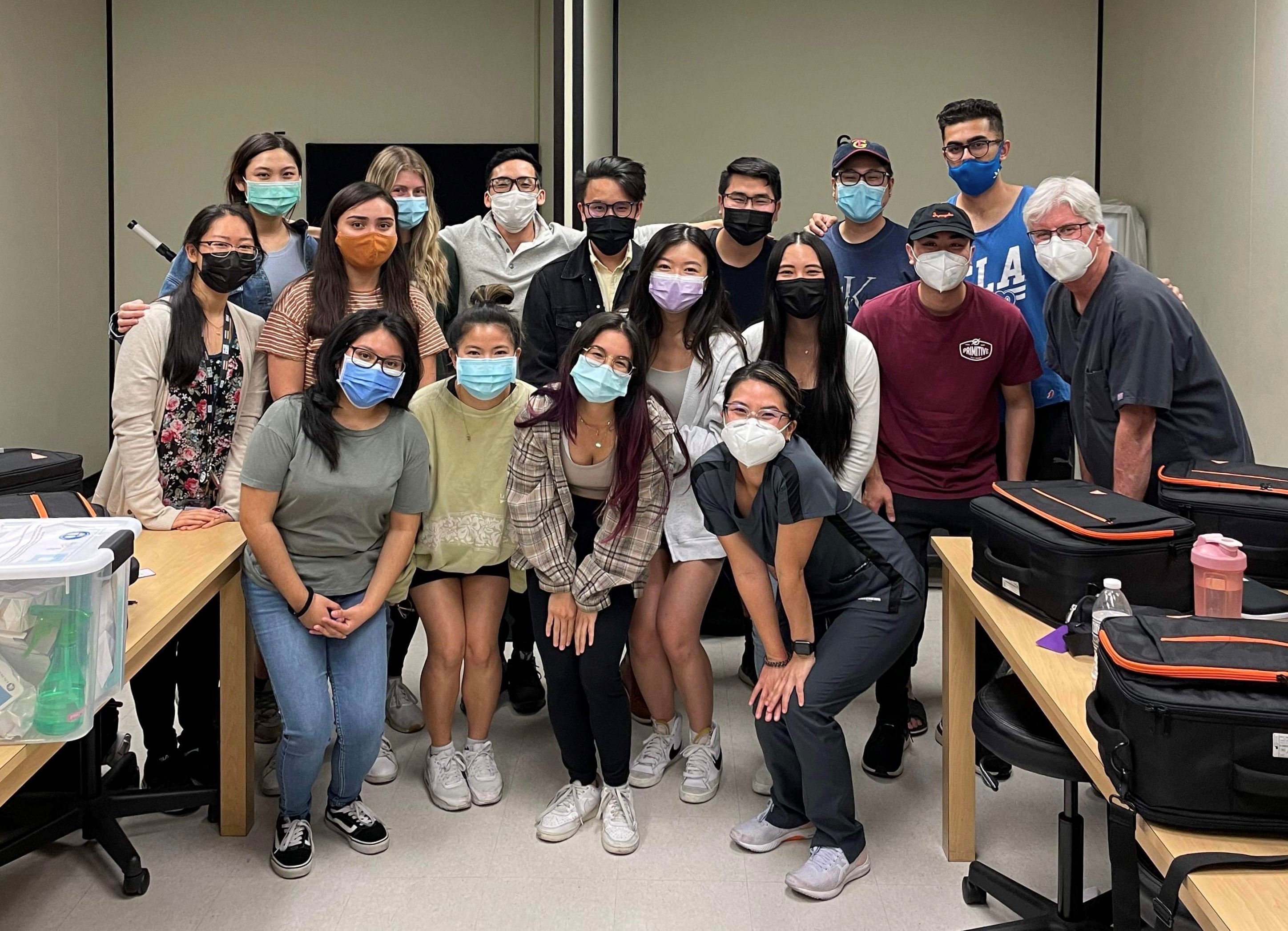Stepping into this next stage of your life may be one of the most life-changing transitions that you will undergo.
You will continuously grow and change as you work towards becoming a healthcare professional. After reflecting on what helped me get through my first year of optometry school, I wanted to share some advice I would give to my first-year self.
1. Practice effectively.
We learned how to use the slit lamp to examine different structures of the eye during the first lab for Ocular Health Procedures IA (spring quarter of OD1). My first run-through took more than an hour because I had no idea what I was looking at. We were expected to take our slit lamp mini proficiency in a matter of weeks, in which we would complete a full run-through in under four minutes while maintaining a clear view. It appeared to be an impossible task. This is when I learned one of the best tips for practicing for proficiencies. Master the skills first before focusing on timing. It is pointless to rush if you are not performing the skills correctly. As I became more familiar with the equipment, the motions became second nature to me, and I knew what a "clear view" was supposed to look like. It took time and practice, but the seemingly impossible task became more and more feasible over the weeks.
2. Study for the future patients who will sit in your exam chair.
It is very easy to become so immersed in your studies that you lose sight of the end goal, which is to be able to help the future patients who will sit in your exam chair. During my undergraduate studies, it felt like an endless cycle of "information in, information out" - rinse and repeat. Learning to understand rather than memorize was what changed my life in graduate school. I want to be prepared for cases that are out of the ordinary because the future patients who will be sitting in my exam chair are not from a textbook. Because this program prepares us to be future healthcare professionals, they challenge us to apply what we've learned in practical ways. That is why it was so important for me to have the mindset that I was here studying for my future patients, not just for my upcoming exams.
3. Making mistakes during tests and proficiencies is a blessing in disguise.
Being evaluated during written exams and proficiencies may be one of the most difficult aspects of first year. Learning to think of proficiencies as "progress checks" with the lab instructors was one of the best pieces of advice that helped me feel more at ease. Are you keeping up with these clinical skills? If not, how can we assist you in getting there? I learned that making mistakes during a proficiency is completely normal. For many of us, these are brand new skills that will require experience to master. It is better to make those mistakes and learn from them during pre-clinic lab rather than on a real patient. In fact, the instructors are knowledgeable and experienced, so you should let them guide and advise you before and after your proficiencies. After all, you've come here to get a good education.
4. Stay ahead and do not fall behind.
Falling behind in your classes is one of the most common pitfalls in this program. It's easy to become overwhelmed with the hectic class schedule and a seemingly endless number of exams. You may be tempted to skip some classes in order to catch up in others, but this cycle will eventually catch up with you. Some of the study methods developed in undergraduate school may have worked at the time, but they no longer do. One of the best ways to avoid falling behind is to not only keep up but actually stay ahead. If you can spend even ten minutes ahead of time downloading the lecture slides onto your iPad and previewing the material that will be taught during the lecture, you will have a significant advantage. Moreover, when you read the lab manual before attending the lab, you can go in with specific goals that you want to achieve during the lab session. This allows you to make the most of your lab time and, as a result, enhances your learning experience.
5. Make it an experience that you will remember.
My first year of optometry school was a year that challenged me to new heights, but I wouldn't have had it any other way. I learned to get out of my comfort zone in order to get to know my peers, network with professors, and join organizations about which I was passionate. All of these small steps have brought me one step closer to becoming the optometrist I've always wanted to be. Make the most of each year in this program because each one is unique and life-changing. Enjoy the joyful times, embrace the challenging times, and make each day here one to remember.

